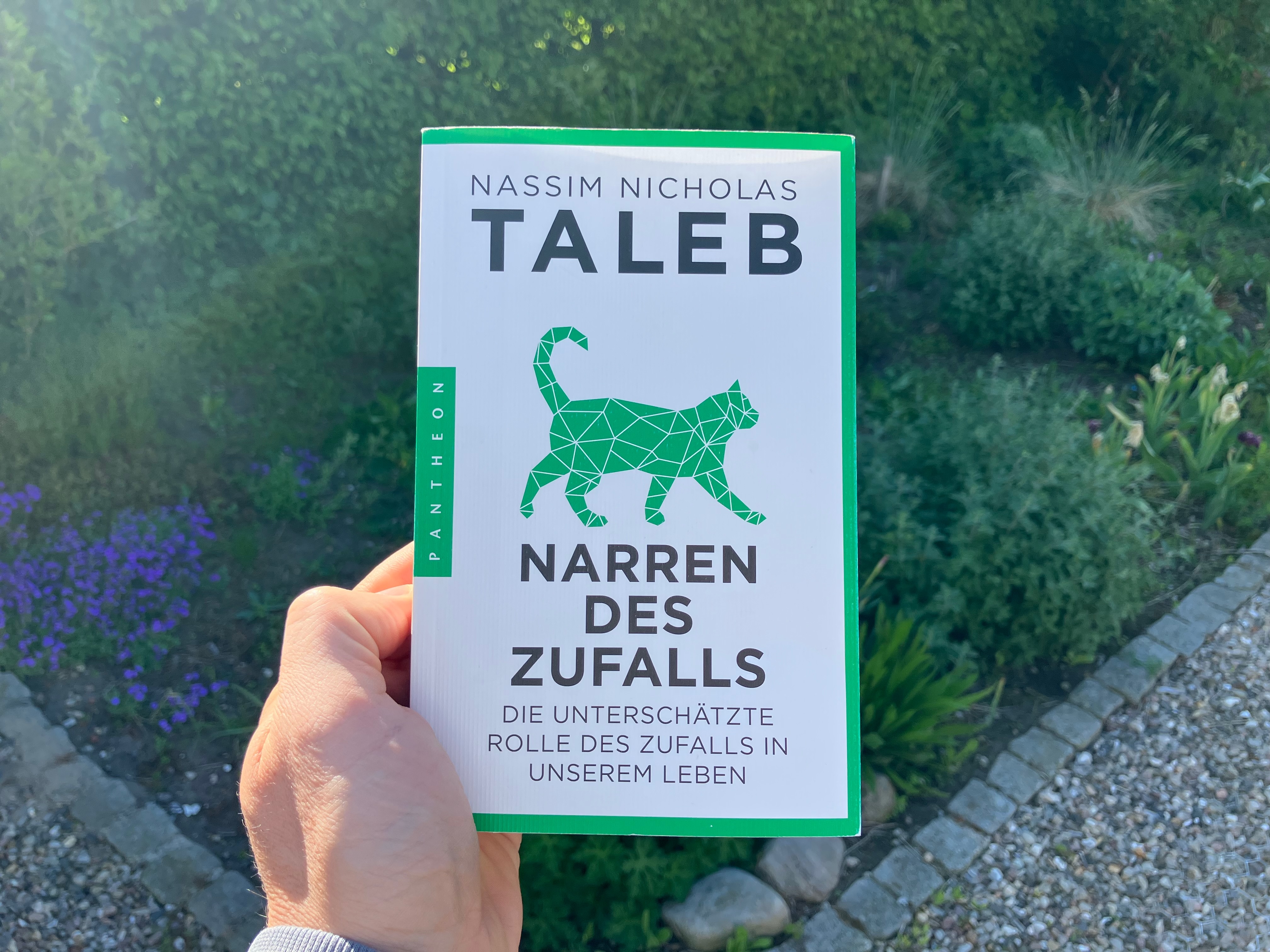Review "Fooled by Randomness"
Nassim Nicholas Taleb's "Fooled by Randomness" is a must-read for anyone who wants to understand risk. Learn a new perspective on chance and its impact on our decisions.

About the Author
Nassim Nicholas Taleb is a Lebanese-American essayist, mathematical statistics theorist, former options trader, risk official, and aphorist. He was born on November 21, 1954, in Beirut, Lebanon. Taleb studied mathematics at the University of Paris IX-Dauphine and later at the École Polytechnique in Paris. He later worked as an options trader at a bank and developed a profound understanding of the risks associated with financial markets. Taleb is the author of several books, all on my bookshelf—"Fooled by Randomness" is the first one I read by him.
Taleb developed the concepts of "black swan" and "antifragility." He argues that many modern systems are not prepared for adversity but must respond to it. Antifragility is a state in which a system benefits from extreme events.
What is the book about?
The book "Fooled by Randomness" is a philosophical essay in which Nassim Nicholas Taleb presents his theory on the nature of chance and the role of uncertainty in decision-making. Taleb argues that many scientific models, due to their focus on averages and linear processes, fail to capture the unpredictability of chance accurately. Instead, he emphasizes the importance of "black swans"—unexpected events that can significantly impact decisions.
The book aims to convince readers that science and mathematics can be limited in their ability to analyze uncertainty and unpredictability. Instead, Taleb seeks to offer a new perspective on understanding chance.
What's so great about it?
Initially, I was particularly impressed by Taleb's precise and, at times, cynically arrogant writing style. Taleb thereby succeeds in drawing attention to chance and its impact. The impulses, with which Taleb seeks to inspire readers, worked for me. I often had to admit that I'd fallen victim to one bias or another. It's precisely through reading like this that I can further develop my perspective on things.
What annoys me about it?
What initially excited me grew into a dislike as the book progressed. The manner, the mockery, and the arrogance took over. This overshadowed the core of Taleb's brilliant arguments. I found it difficult to read past it and focus on his key concepts.
The best quote
Taleb emphasizes that people confuse the comprehensibility of arguments with their correctness. This observation highlights the danger associated with populism, especially since it has become acceptable via social media.
What did I learn?
During my studies, I dealt with probabilities and statistics. It never occurred to me to consider the impact of chance and how this aspect affects, for example, risk assessment. What's worrying is my lack of awareness of how I make decisions and assess risks and their probability of occurrence, not rationally and sensibly, but based on emotions, what's known, and what's concrete. The entire list of new insights revolves around errors in decision-making.
Why everyone should read the book
The book provides an essential introduction to risk management for personal or business challenges. It encourages critical thinking about the assumptions of science and mathematics regarding uncertainty and unpredictability.
Awareness of my shortcomings allows me to smile at myself. The impulse to think critically is never wrong. All in all, therefore, Taleb's book is a good investment in one's future.